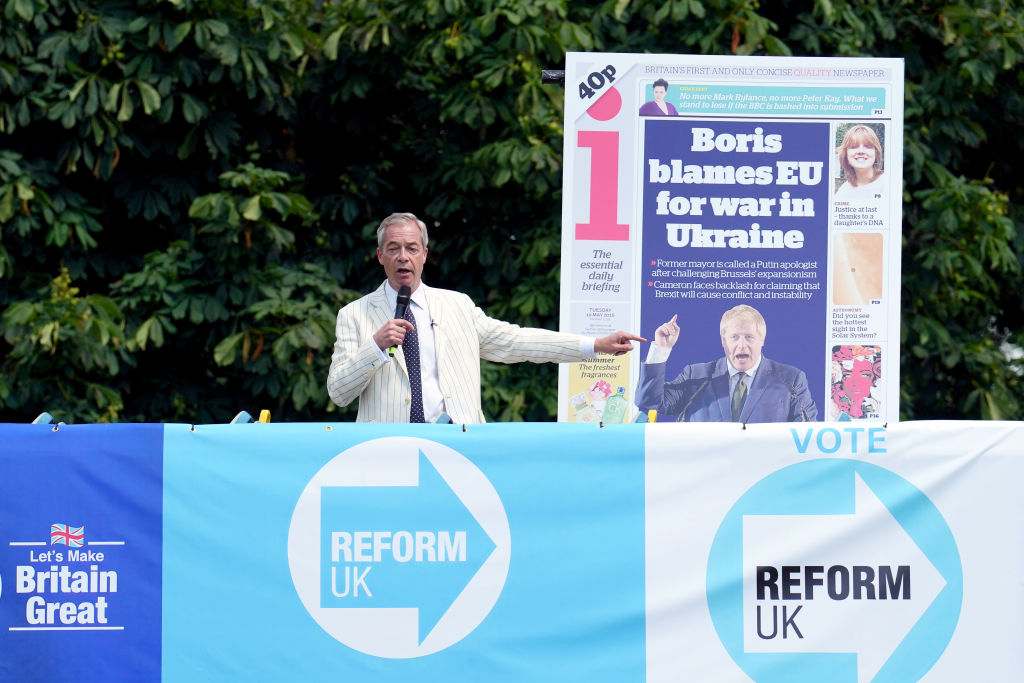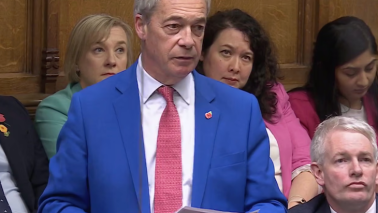Foreign policy hasn’t featured much in this election – until now. Over the weekend, Nigel Farage’s suggestion that the West was partially to blame for Russia’s invasion of Ukraine produced an avalanche of cross-party criticism. Both Keir Starmer and Rishi Sunak labelled his comments ‘disgraceful’, while the Mail on Sunday claimed a member of president Zelensky’s staff had suggested Farage was infected with the ‘virus of Putinism’. Rather than back down, the Reform leader has opted to reprise the pugilists’ playbook and counterpunch with fire.
Speaking to supporters at Maidstone this lunchtime, he told them he would ‘never, ever defend’ Vladimir Putin before insisting he would take ‘no lectures’ from either the Tories or Labour on matters of foreign affairs and defence. In an act of political judo, he used the Russia row to turn his opponents’ attacks on themselves. Declaring that there had been ‘almost no debate’ on these policy areas, he attacked the Tories for cutting the armed forces since 2010 and claimed that Keir Starmer and David Lammy would sign Britain up to a common European defence pact. He added that there was ‘no doubt that the world is in a more dangerous place right now than it has been at any point since the Cuban missile crisis over 60 years ago’.
Broadening his assault, he lambasted the invasions of both Iraq and Libya, suggesting that the latter intervention was responsible for both Isis and the subsequent Mediterranean migration crisis. The rest of the speech focused thereafter on domestic issues, all around a shared theme: the utter incompetence and venality of Britain’s political class. Labour, he suggested, ‘will prove to be, if it is possible, even more incompetent than the Conservatives have been.’ The Tories, meanwhile, now seem to ‘resemble something of an organised betting ring’ who are using the Russia row as a ‘useful distraction’ from their election woes.
The most interesting sub-plot though was Farage’s comments about Boris Johnson. Three days ago, he was suggesting that he could work with the former premier if he repented for his migration and net-zero policies. ‘I like his personality. The more I’ve heard of him I like’, he said on Friday. Yet following Johnson’s condemnation of Farage’s Russia remarks, the Reform leader’s tone has changed. Standing in front of a giant newspaper front page which criticised Boris Johnson’s remarks on Ukraine in 2016, (when he claimed EU policies had inflamed tensions in the region) Farage suggested Johnson was a hypocrite and ought to be known as ‘the worst Prime Minister of modern times’ and the man who ‘betrayed an 80-seat majority.’ That ought to end talk of any kind of post-election pact between the two men.







Comments